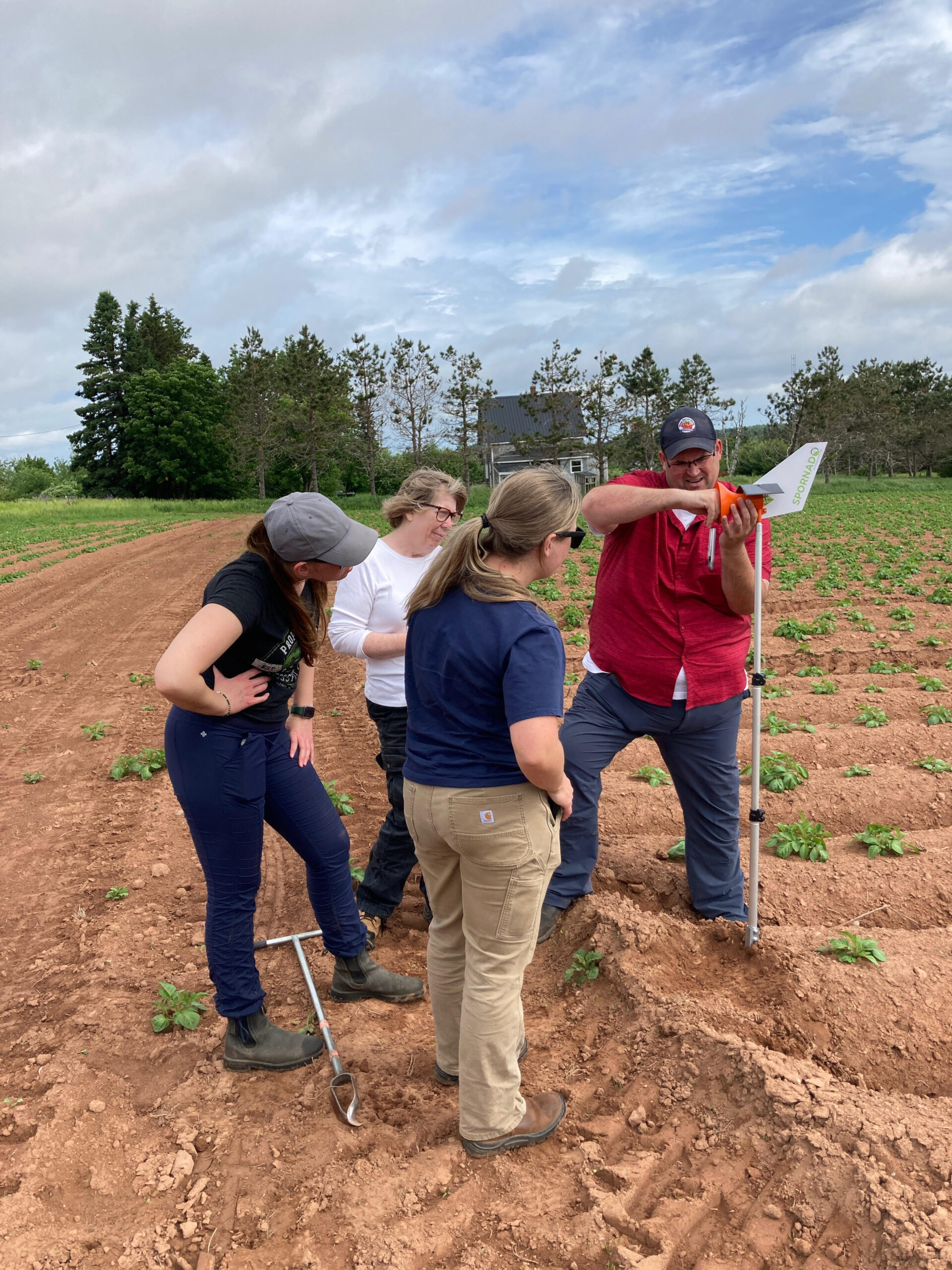
06 Jul Local Watershed Groups Cooperating with PEI Potato Board on 2023 Blight Spore Monitoring Project
For the 2023 growing season, the PEI AgriWatershed Partnership is funding a Late Blight Spore Monitoring Project in cooperation with the PEI Potato Board and a number of local watershed groups.
Late Blight is a serious challenge to potato production on PEI. The disease, caused by a fungus-like micro-organism (Phytophthora infestans), has the potential to cause significant damage to a field and can result in millions of dollars lost if there is a major outbreak.
Managing late blight in potato production involves an integrated approach using a variety of tools to mitigate the risk of a field becoming infected. Because spores from an infected field can travel so readily through wind to other potato fields, late blight is also a community disease, so farmers are particularly vigilant when dealing with this pest.
The cornerstone in the control of late blight is prevention. Among other measures, producers will use a variety of sprays to protect their crop. Early in the season, before row closure, systemic products are typically used. Systemic fungicides will travel through the plant and protect it from infection. As the season progresses, contact fungicides that stick to plant surfaces and do not get absorbed into the plant will be used. These products are safe and effective, but do carry a higher risk of moving from the target area to the surrounding environment, particularly as the product can adsorb to soil particles and move with soil should runoff occur.
Spray schedules will vary according to the risk of infection. Typically, when producers assess their situation, they will consider 3 factors;
- the presence of a host
- favourable weather conditions for blight spore multiplication
- the presence of the disease inoculum i.e., the blight spores.
Monitoring the weather and for the presence of blight spores are key pieces of information that can help producers decide if a particular application of fungicide is necessary.
One of the Beneficial Management Practices (BMPs) promoted by the PEI AgriWatershed Partnership for cropping near watercourses and wetlands encourages producers to utilize technology to make the most informed decision on when, or if, to spray. To support adoption of this BMP, the AWP is partnering with the PEI Potato Board to expand the blight spore monitoring network from 8 sites across the Island to 12 for the 2023 season.
Blight spores are captured with Spornado collection devices located in potato fields. The collectors have small cassettes with fine membranes designed to capture the spores. On a weekly basis, each cassette is retrieved and sent to the Potato Quality Institute in Charlottetown, where it is analyzed for the presence of late blight spores using PCR technology, which can detect the late blight spores through DNA analysis. To provide this information to growers in a timely fashion, the turn-around time from field retrieval to grower update, is 2 days.
Crucial to the success of this project is the participation of several watershed groups who are assisting with the cassette retrieval from the collectors on farms distributed across the Island.
Land in agriculture production represents the largest land use category in most watershed areas on PEI. Building and strengthening relationships with their local farming community is a goal of many rural watershed groups on the Island. The watershed groups who were approached to participate in the project welcomed the opportunity to be active partners in helping farmers with the adoption of this BMP to protect watercourses and wetlands.
A huge thank you to the watershed groups cooperating with the 2023 Blight Spore Monitoring Project;
